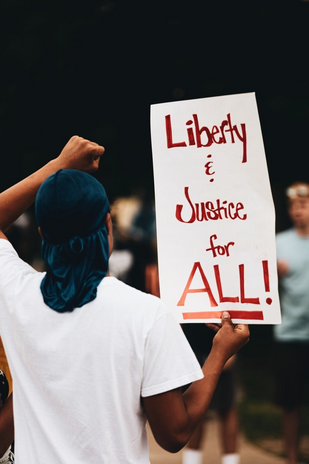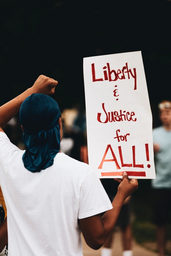Has xenophobia emerged yet again? The ongoing problem of xenophobic tensions in South Africa and the UK has been illuminated once more after a recent surge of anti-immigration uprisings in the United Kingdom following the killing of three young girls in Southport and the uproar against the former Miss South Africa 2024 contestant. South Africa and the United Kingdom are both countries that frequently grapple with xenophobic violence and harassment against foreign nationals living in their country.
In South Africa, xenophobia appears to be entrenched in society, with sporadic attacks and harassment against foreign nationals. A culture has emerged amongst some South Africans of raiding businesses that belong to foreign nationals, motivated by the blame for economic hardship being unfairly placed on immigrants. The notion of immigrants “stealing jobs” and contributing to crime and poverty in the country has run rampant for years, often creating the perception that South Africa is an inherently xenophobic country. Asylum seekers and refugees have been left to fend for themselves while citizens call for their deportation. This has been disappointing to see over the years, given that our constitution protects citizens and non-citizens.
This xenophobia has been prevalent in the derogatory names and stereotypes that have once again emerged with the scandal regarding the former Miss South Africa contestant. Irregularities were detected in the contestant’s citizenship due to her father’s Nigerian nationality and mother’s Mozambican nationality, causing a row on whether she qualifies for Miss South Africa. The contestant maintained that she was born in South Africa, which would legally qualify her for the pageant. However, recent information that suggests irregularities in her documentation of birth by her mother contests her South African citizenship. Public discourse called for her disqualification and once again brought forth xenophobic language. The contestant withdrew from the pageant, raising the question, “Did South Africans handle the situation well?”
Yet, as we have seen recently, South Africa is not the only country with this dark can of worms. Far-right and anti-immigration rioters have taken over the United Kingdom, with unrest spread across cities in England and Northern Ireland. By the 9th of August 2024, 600 arrests had been made with as many as 100 police officers injured. As a result of misinformation, the killing of three young girls in Southport has been used as an opportunity to justify anti-immigration discontent. Narratives surrounding the killing have identified an immigrant Muslim person as the killer, resulting in a surge of racially motivated hate crimes. Looting and attacks on mosques and hostels for asylum seekers are some of the crimes happening in these riots. The UK is also no stranger to harmful stereotypes that immigrants are “stealing jobs” and the alleged cause of many British people’s unemployment. Discussions around immigration policies are not something taken lightly in the UK. It is a grievance, however, that the killing of three young girls has been twisted for the gain of far-right and anti-immigration rioters.
These recent incidents in countries with a deep history of xenophobia are of great concern. Social cohesion in our interconnected world is something we should strive for rather than finding ways to deepen “us vs them” narratives. It would serve us well to remember that, ultimately, we are all members of the human race, and we ought to have a duty to our compatriots that sees us protect and build each other up.


